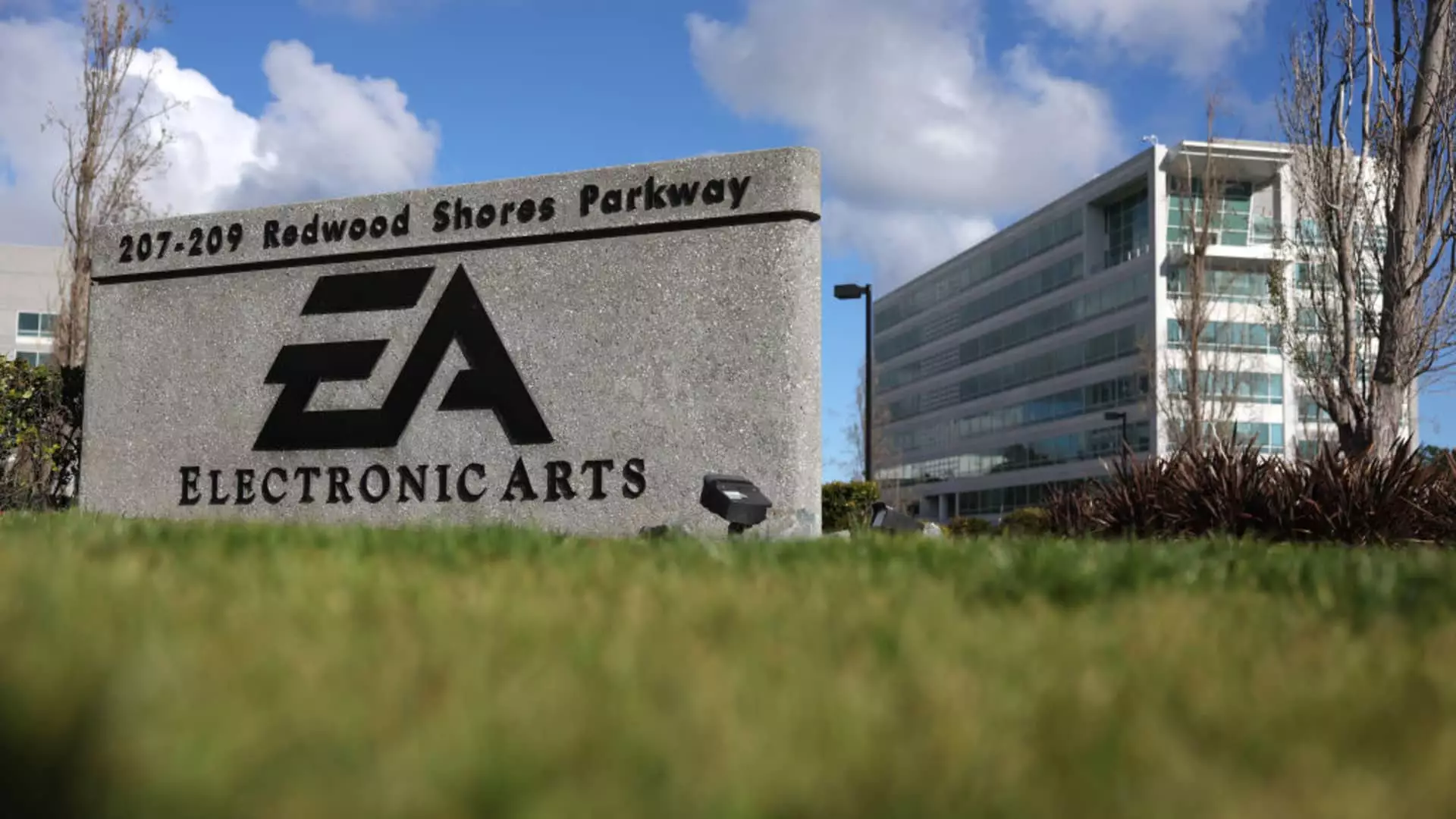In a striking turn of events, Electronic Arts (EA) has found itself grappling with one of the most significant stock declines in its history, an occurrence that sends ripples through the gaming industry and investor circles alike. The company’s shares fell nearly 19%, landing at approximately $115.86, marking the largest drop since the tumultuous days of the dot-com bubble in 1999. This downturn is particularly alarming as it represents EA’s third-biggest market drop since it ventured onto the public stage in 1990. Such volatility raises questions about the integration of market dynamics and the perception of brand strength in an ever-evolving gaming landscape.
EA recently released a pre-announcement, revealing a downward adjustment in its fiscal third-quarter net bookings from a projected range of $2.4 billion to $2.55 billion to a more sobering estimate of around $2.215 billion. This revision has amplified concerns about financial stability and growth prospects, indicating broader issues that extend beyond mere quarterly figures. Investors should take note of EA’s full-year guidance, which has also been revised downward, with estimates now hovering between $7 billion and $7.15 billion—another sign of weakening market expectations. Analysts from Roth Capital Partners characterized this situation as a “big stumble,” capturing the sentiment of broader trepidation surrounding EA’s financial trajectory.
A significant part of EA’s woes seems to stem from its soccer franchise, which has historically been a cornerstone of the company’s success and a leading figure in sports gaming. Following the end of its partnership with FIFA, the company’s flagship soccer titles transitioned to the EA Sports FC brand. However, the performance in this new naming convention raises questions about brand equity and consumer loyalty. The disappointing figures reported—notably, a 1.5 million player count for Dragon Age, which fell short by approximately 50% of expectations—underscores the challenges EA faces in retaining its player base and mustering interest for new releases.
The decline in earnings and forecasts signals not just a momentary lapse but perhaps a more profound transition in consumer preferences. The ramifications of the shifting soccer landscape cannot be understated; as EA’s historical dominance in this segment faces challenges, other competitors are likely waiting for opportunities to fill the gap. Changes to the gaming sphere, including an increase in free-to-play models and the rise of mobile gaming, further complicate EA’s positioning. With an expectation of declining year-over-year global soccer sales, the company’s strategy moving forward must recalibrate to address these evolving consumer expectations.
As EA prepares to release its full financial results on February 4, stakeholders will be keenly watching to assess how the company plans to navigate these choppy waters. The complexities of generating long-term growth will require not only adjustments in gaming titles but also an innovative approach to engaging players across multiple platforms. To regain investor confidence and player enthusiasm, EA must renew its commitment to quality and find ways to foster stronger community connections. The next steps will be critical to determining whether EA can resurrect its glory days or if it will succumb to the pressures of a rapidly changing gaming industry.

